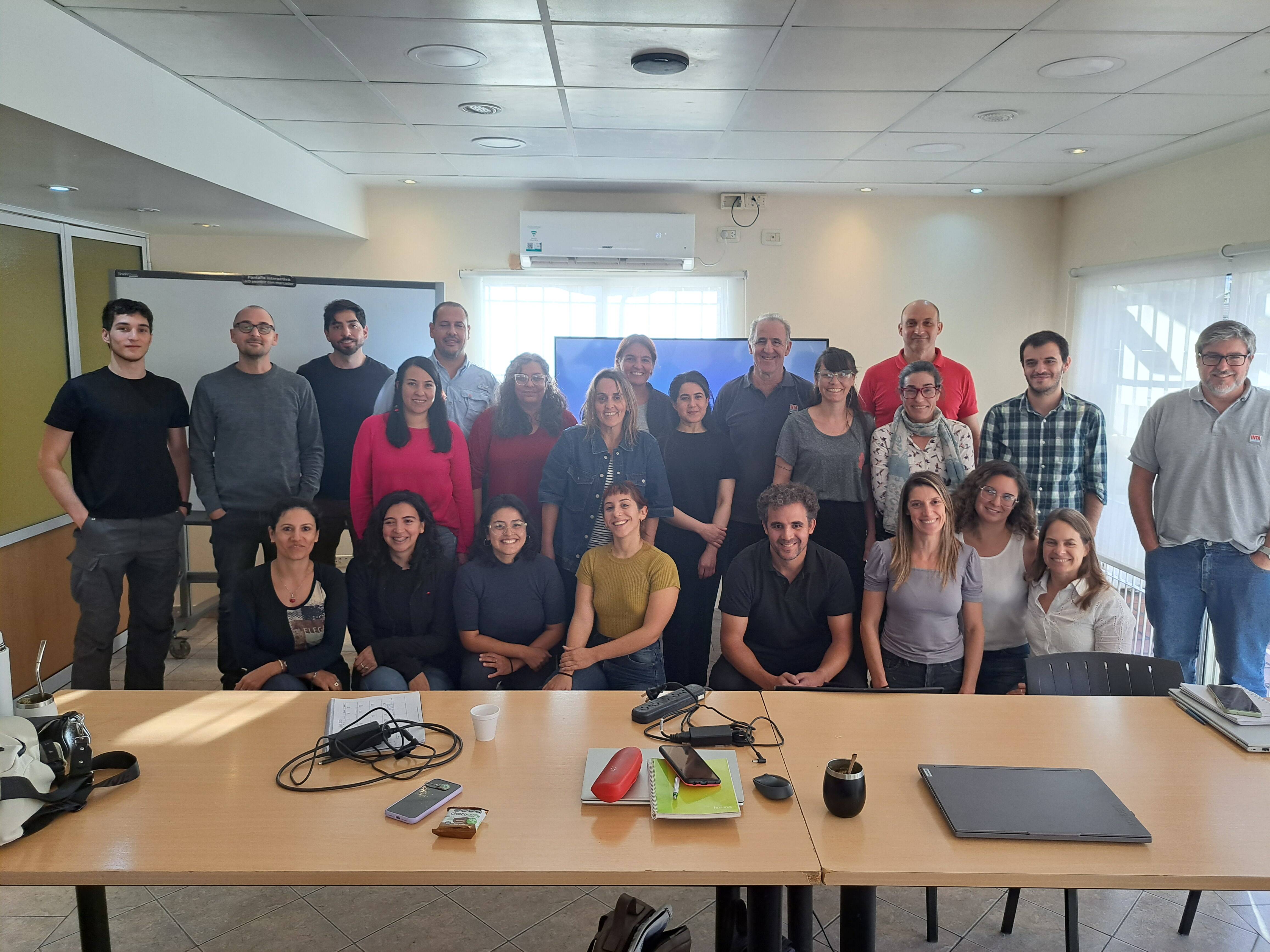The training, organized by INTA Balcarce, brought together veterinarians and advanced students to deepen their expertise in assisted reproduction and biotechnology applied to genetic improvement in cattle.

From March 25 to 28, 2025, the INTA Balcarce Experimental Agricultural Station hosted the tenth edition of the Training and Refresher Course on Ultrasound-Guided Follicular Aspiration in Cattle, a key initiative aimed at training professionals in advanced reproductive technologies and gene editing in livestock.
The course took place at the “Dr. Ricardo Alberio” Reproductive Biotechnology Training Center and was organized by INTA Balcarce’s Reproductive Biotechnology Group. It brought together practicing veterinarians and advanced veterinary students interested in deepening their expertise in cutting-edge bovine reproduction techniques.
Over the course of four intensive days, participants received hands-on and theoretical training in procedures such as Ovum Pick-Up (OPU), the handling of cumulus-oocyte complexes (COCs), in vitro embryo production, and embryo transfer, all with a strong emphasis on animal welfare.
“The goal was to provide practical tools that can be applied to real-world genetic improvement and assisted reproduction programs, as well as gene editing projects,” explained Dr. Federico Hozbor, one of the leading instructors.
The multidisciplinary teaching team consisted of INTA biotechnology experts: Federico Hozbor, Hugo Nigro, Pablo Vispo, Leandro Picotto, Adriana Lauro, Pablo Burges, Monserrat Arellano Buendía, and Juan Ignacio Lobo. Under their guidance, participants practiced ultrasound-guided aspiration, ovarian handling, and COC conditioning for laboratory use.
This course is a major step forward in professionalizing the livestock sector and highlights reproductive biotechnologyas a strategic tool for the advancement of precision livestock farming in Argentina and the region.




